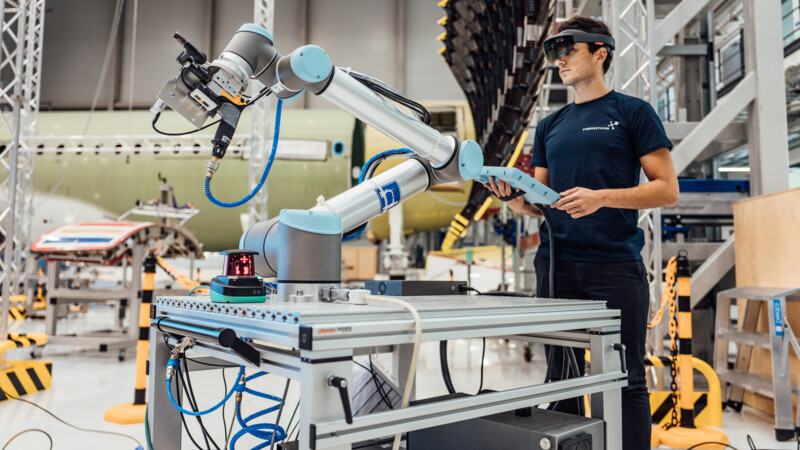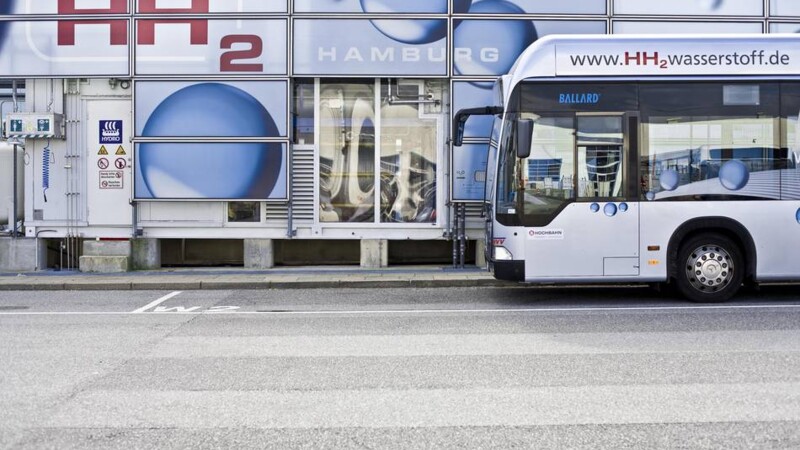Hamburg-based Natix making cameras intelligent for smarter cities
The number of surveillance cameras in public spaces is growing and likely to top one billion worldwide by 2021. More than 627,000 surveillance cameras have been set up in London alone, the tech magazine Comparitech reported earlier in 2020. And data protectionists are highly critical of the growing CCTV network. However, video analysis is a milestone en route to smart cities especially intelligent mobility, according to Dr. Alireza Ghods and Lorenz Muck, founders of the Hamburg-based Natix start-up. The duo and their joint founder, Omid Mogharian, have developed an artificial intelligence method of processing video data in a decentralized manner and anonymising sensitive data in real time. The company has received financial backing from the Gründererförderung Exist run by the German Ministry of Economics and Energy, and the IFB Innovationsstarter GmbH’s InnoRampUp programme. In an interview with Hamburg News, the founders explain how they want to make cities smarter, why they rely on edge computing and reveal where their AI video solution is already being used.
Hamburg News: Can you outline your idea?
Lorenz Muck: Nobody likes being watched. We don't feel comfortable when somebody on a commuter train tries to look at our mobile phone. On the other hand, there are situations in which it would be good to have a second pair of eyes watching over us. If you are alone in a dark alley and have an accident, you want someone to be there to witness that and to help or call for help. As long as our privacy is protected, using cameras is often acceptable. Enter Natix: we want to make cameras intelligent without violating people's privacy.
Dr. Alireza Ghods: For this reason, we use our software installed on the cameras and devices, which facilitate the exchange of data, applications and computing power between different cameras in a virtual swarm. The cameras analyse and identify a situation from different perspectives. We use AI to anonymise sensitive data such as faces or number plates and can improve the video to make it suitable for analysis and further use.
Hamburg News: Why do you rely on edge computing instead of cloud services?
Ghods: Cloud-based video analysis in real time reaches its limits quickly. The data is sent from cameras to the cloud where it is processed. The findings are then sent back to the place where decisions become reality. This is complex, costly and leads to latency. Moreover, many people do not want their faces to appear on the internet. For this reason, we decided to bring intelligence from the cloud to the camera network. We have opted for edge computing, i.e. moving applications to individual devices and thus to the "edge" of the network to reduce the load on conventional data traffic.
Hamburg News: How do you intend making cities smart?
Muck: Our computer vision platform is suitable for various use cases to make cities smarter. Firstly, we can combine the individual camera perspectives to create a high-definition (HD) map with real-time information about e.g. dangerous situations, behaviour of crowds, etc. We have noticed great interest in two applications. Forecasting delays better and improved departure times in public transport. We can combine, for instance, live occupancy data from cameras in the bus or bus stations, traffic cameras, the location of the bus with weather conditions. Another use case involves tracking parking spaces in a detailed but inexpensive manner. There are also use cases in industrial contexts as such sites are similar to a city due to their size and complexity. We can use our AI video to detect protective equipment, to locate injured people and to ensure that nobody or just the right number of people are in a particular area.
Hamburg News: Where is your AI video solution already in use?
Ghods: We have developed a plug-and-play product called the Natix Virtual Doorman that can monitor face mask and maximum occupancy compliance anonymously amid the COVID-19 pandemic. Our software reminds visitors to wear masks and controls the maximum utilisation via an LCD display. The AI solution anonymises faces in real time on the camera. If someone without a mask enters, which infringes the COVID-19 regulations, the stored contact person receives an SMS and alerts the guest. The Virtual Doorman has been used in the co-working space at the Lübeck Technical Centre (TZL) since May. We are negotiating more pilot projects with potential partners including camera and chip manufacturers.
Hamburg News: Many thanks for the interview.
Interview by Sarah Bischoff.
sb/kk/pb
Sources and further information
More
Similar articles

Smart City: German government funding "Digital Twins" project

Wunder Mobility launches new podcast on future of transport

ARIC pushing artificial intelligence ahead
